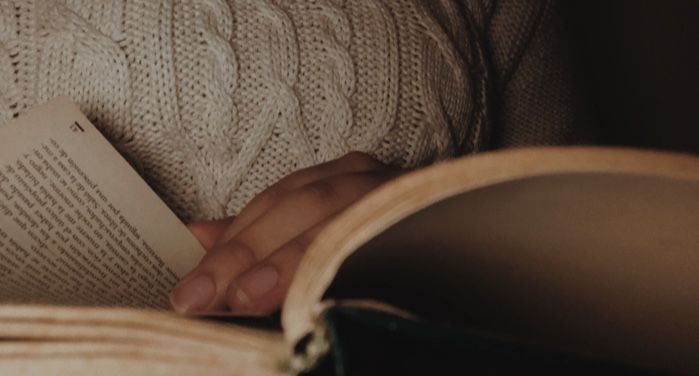
Adventures in Public Reading: Classics on the Train
My commute is a short one. Door to door from my house to my office is 20 minutes by Metro train on an average day. This doesn’t leave a lot of time for reading on the train, but I try to squeeze in a chapter or two depending on the book,each way.
And I’ll be honest, sticking my nose in a book has added benefits. I can shut out the low hum of irritable worker bees that commute with me and lose myself in a great story, even if it is only for half a dozen stops. I’m usually a much more patient person by the time I fight my way through the crowds to my desk if I’ve read a few pages along the way.
But I’ve noticed a trend recently, while I’ve been reading classics or modern classics on my commute.
With new releases, even ones that are insanely popular, no one really stops me to comment on my book.
However, the past week or so, while I’ve been readingFahrenheit 451, nearly every single time I’ve had the book out on the train, someone has made some observation about my reading choice. A few days ago, it was a cute guy in a suit who decided I’d find it relevant that he totally despised the book when he read it in high school. (He lost cute points for that.)
This morning, a woman reading a copy of The Giver wondered if I was enjoying Fahrenheit, as she’d just finished it and loved it. Then she asked if I’d read The Giver and we chatted for several stops about our favorite classic dystopian novels. I recommended The Handmaid’s Tale by Margaret Atwood; she suggested the Uglies series by Scott Westerfeld.
A month or so ago, I got similar reactions when I was reading Ender’s Game on the train. That one elicited a lot of strong feelings on both ends of the spectrum.
But other books I’ve read recently that a lot of people are reading – Gone Girl, The Age of Miracles – haven’t elicited that kind of feedback from strangers.
I wondered – what about these kinds of books makes people reach out on a crowded train to offer commentary or input or just express that there’s a shared reading history between us?
Of course, many of us read these kinds of classics in school (even though somehow I avoided a lot of them), and even for those people who are not capital R “Readers,” classics like these give everyone a chance to express a point of view. They bring people together because so many of us have some kind of experience with them. When I mentioned to one person who commented on my copy of Fahrenheit 451 that it was my first time, he was astounded and said he’d read it at least three or four times.
My other working theory is that, for most people, picking up the latest hardcover bestseller from the front shelves is easy in the world of readerdom. But making the effort to choose a backlist book, maybe one that’s sometimes out of sight, out of mind once you’re past the age of school-imposed reading lists, conveys a larger connection to the literary world. It indicates that the reader is paying attention and is perhaps more fully committed to their reading life. And for a lot of contemporary-focused readers, choosing a classic sci-fi or dystopian novel is a deeper dive into the genre if you’ve never read them before.
Whatever is driving it, I’m finding that I really don’t mind the interruptions. Though my intention is normally to dissuade people from bothering me, I’m actually loving the connections I’ve made because of my book du jour. Meeting people or reconnecting with people because of well-read classics is one more justification for why reading these tomes is worthwhile. Beyond the fact that I’ll get to cross another title off my book bucket list, I’ve gotten just as much out of my interactions because of the books as I have from the books themselves. Hated Catcher in the Rye? We can totally bond over that too.
After all, if I really wanted to shut people out, I have noise-canceling headphones too.










